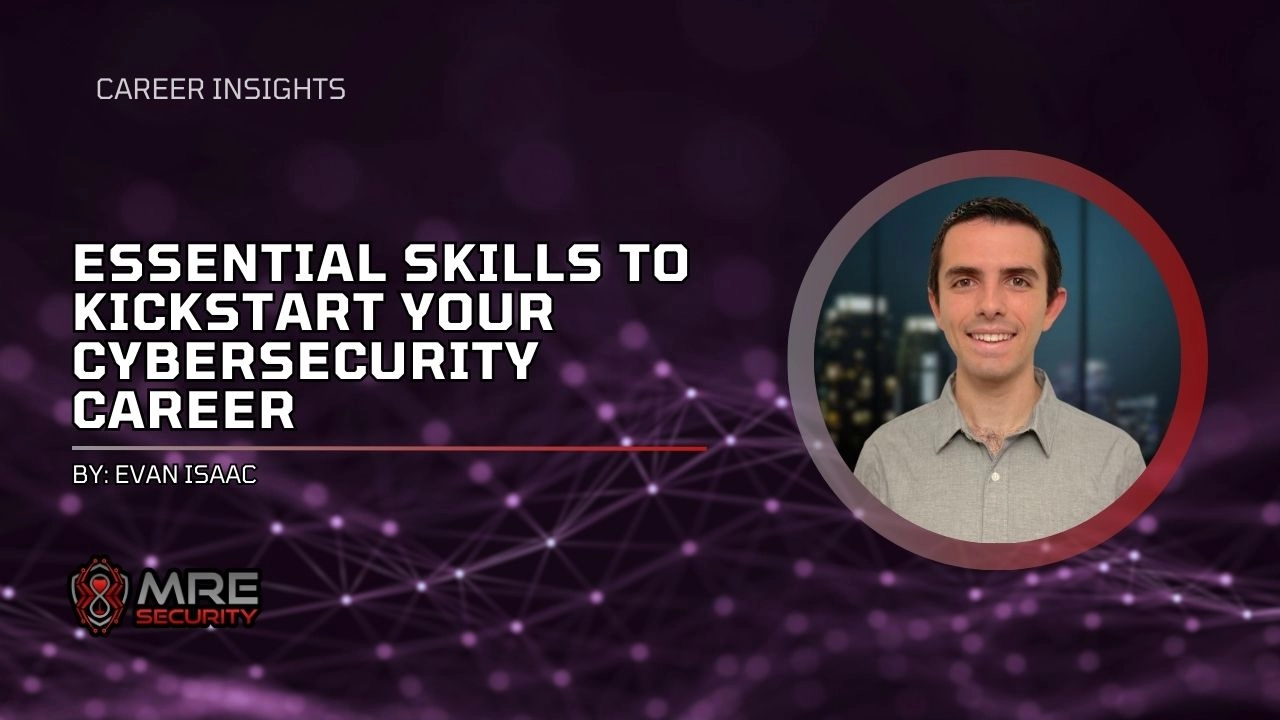Cybersecurity Is Bigger Than You Think
Cybersecurity is a broad term, as there are various avenues you can take when starting. What is cybersecurity? The way I like to explain it is that cybersecurity professionals are the police of the internet. They prevent cybers-criminals from harming companies. Cybercriminals (threat actors and attackers) are essential for keeping our industry afloat. Sounds weird, right? We need these cyber-criminals to continue being bad to keep the cybersecurity industry alive.
As I’ve said before, cybersecurity is a broad term. You can take many avenues in cybersecurity, but that’s for another blog.
Start with the Basics
No one is an expert when they first start in this industry. There is a lot of studying and guidance to advance. Each person is different, as some learn more quickly than others. Let’s dive into things you should start looking into.
Hardware/Software
When talking about computers, it is essential to understand how a computer works. When hiring someone to work on your electrical issue, would you choose a plumber or an electrician? Being knowledgeable in this field requires you to understand the basics. Here is a good starting point:
- What does Random Access Memory (RAM) do?
- What is a motherboard?
- What is the CPU, and why is it important?
- How do components work together, and how do you avoid bottlenecking?
- How do you choose the right system for you (laptop or desktop)?
- Which operating systems are out there?
While this is a short list, it is a good baseline for learning how a computer works.
Networking
The first step in learning cybersecurity is basic networking. Here are some questions to ask yourself:
- How do computers communicate?
- What is an IP Address?
- What is TCP and UDP?
- What is a protocol?
- What is a port?
- What is the difference between a router and a switch?
These questions can begin your journey into researching what networking is. You can dive deep into it and go down a rabbit hole, which is fantastic, and that is what cybersecurity is all about! Networking is essential for the internet to work, so it’s imperative that you learn this step. Networking Academy (Netacad) by Cisco has fantastic resources you can use to start learning the fundamentals of networking, and it’s free as of writing this blog post.
Linux
Linux is a popular operating system within the industry, known for being open-source and versatile. Many jobs in the field require familiarity with Linux, as it offers flexibility and adaptability. Numerous Linux distributions, or “distros,” are tailored to various needs. Among the most popular are Ubuntu and Debian. A notable derivative of Debian is Kali Linux, a well-known distribution specifically designed for penetration testing.
A great place to start learning Linux is OverTheWire, a platform that uses the Capture-The-Flag (CTF) style. To move forward, you must complete levels. You must do external research on different Linux commands, but this is a great starting point.
Don’t Forget People Skills
While learning about the technical stuff is fun, we are still human and must interact with others. Your job will be to solve problems and report back to the client. These calls will discuss issues in the company, risks that could happen, and working with teams to make sure the client is well-protected from threat actors. Taking technical skills and articulating them into understanding and meaningful conversations goes a long way in this industry. Practice how you would communicate about technical topics to non-technical people.
Take That First Step
Starting a career in cybersecurity can feel overwhelming with the wealth of knowledge you will be taking in, but everyone starts somewhere. The key to a successful career in cybersecurity is learning, practicing, and being persistent.
Authors

Lead Technical Writer
Evan is a dedicated cybersecurity professional with a degree from Roger Williams University. He is certified in GRTP, OSCP, eWPTX, eCPPT, and eJPT. He specializes in web application and API security. In his free time, he identifies vulnerabilities in FOSS applications and mentors aspiring cybersecurity professionals.
Recent Posts

React2Shell Unauthenticated RCE (CVE-2025-55182) – Full Exploit Walkthrough | P3rf3ctR00t 2025 CTF
Comprehensive PerfectRoot 2025 CTF writeup: detailed walkthroughs of authentication bypass, React2Shell RCE, and SSTI!
Dec 9, 2025

HuntressCTF 2025 Malware Challenges – Writeups & Analysis
Learning about malware analysis through HuntressCTF challenges. Deobfuscate code and using Telegram API to retrieve the flag.
Nov 1, 2025

HuntressCTF 2025 Miscellaneous Challenges - Full Writeups
Explore the unexpected in HuntressCTF 2025 Misc challenges. Creative puzzles, crypto quirks, and logic traps that test your problem-solving edge.
Nov 1, 2025

